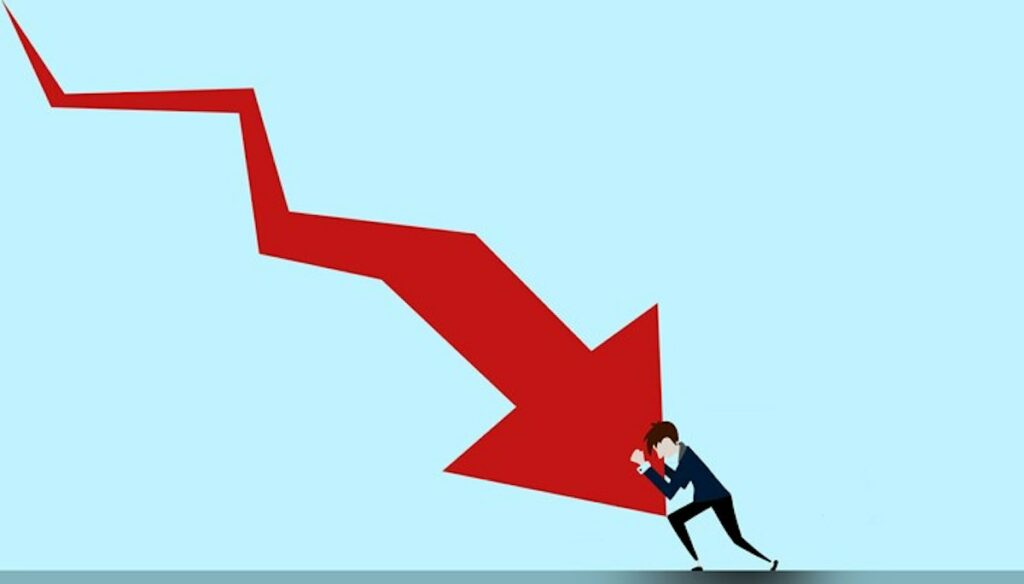UK Economy Shrinks As Consumers Reduce Their Spending
Because of the cost-of-living crisis and declining output from the health sector, the second quarter’s GDP fell by 0.1%.
The cost-of-living issue has started to affect consumers’ spending, and the health sector’s output decreased as a result of a drop in Covid cases and testing during the second quarter of the UK economy.
The number of goods and services produced, or gross domestic product, increased by 0.7% in the first quarter of the year but declined by 0.1% in the second.
Before the UK enters a recession during the winter as additional increases in energy costs compress family budgets and reduce expenditure, a brief rebound is anticipated in the third quarter.
With GDP declining 0.6% in June, the dip was more pronounced towards the quarter’s conclusion but was offset by two missed working days due to the Queen’s platinum jubilee. However, the Office for National Statistics said that the festivities had “little impact on the quarterly estimates” and that the decline in GDP was due to the slowdown in economic growth.
Overall, Friday’s numbers were in line with what analysts and the Bank of England had predicted.
The termination of Test and Trace was a big factor in the second quarter’s production fall, according to Yael Selfin, chief UK economist at KPMG, although overall economic malaise was evident.
“Households are already bruised by rising inflation, which is putting a squeeze on real incomes while rising interest rates are making servicing mortgages less affordable. The expected rise in Ofgem’s utility tariff cap this autumn could be the final straw before the UK enters a consumer-driven downturn,” she said.
The second quarter saw the UK economy fare better than the US but worse than the other G7 countries of Germany, France, Italy, and Canada, which had a stronger recovery from the pandemic.
Nadhim Zahawi, the chancellor, said: “I know that times are tough and people will be concerned about rising prices and slowing growth, and that’s why I’m determined to work with the Bank of England to get inflation under control and grow the economy.”
Some pessimistic economists believed that the GDP decrease signalled the beginning of a recession. “It now looks like the UK economy entered a recession,” said Stephen Millard, deputy director of the National Institute of Economic and Social Research, “because we expect output to continue falling over the next three quarters.”
The second quarter’s specific data revealed that consumers were already feeling the squeeze, with consumption down 0.2%. However, there was some good news in the form of an increase in corporate investment of 3.8%. Despite becoming variable in recent quarters, business investment still remained 6% below pre-pandemic levels.
With the exception of precious metals, trade performance was once again weak, with a record trade deficit. The difference between exports and imports, which represents 4.5% of the country’s revenue and is the highest since comparable statistics started in 1997, was £27.9 billion.
While costly oil and gas imports account for a large portion of this gap, there have also been considerable increases in imports of equipment and automobiles from the EU without comparable increases in exports.
Sector-wise, the major drop in production during the second quarter was in the services industry, notably in the health and retailing sectors, which was somewhat offset by gains in the services associated with the burgeoning tourism industry. Despite record prices, the North Sea oil and gas industry and manufacturing both saw minor contractions.
The data indicate that the UK economy grew by 0.6% from the quarter before the pandemic, but that growth was much less than anticipated at the time, indicating long-term harm to economic performance.
Time to brace for a cold, cold winter!!!
Bbbrrrrrrrrrrr…
online sources: ft.com, bbc.co.uk All opinions and views expressed or suggested by the Digital Zeitgeist are not necessarily the same opinions and views held by or suggested by GPM-Invest plus any and all partners, affiliates, parties, or third parties of GPM-Invest. Any type of media distributed by GPM-Invest IS NOT financial advice. Please seek advice from a professional financial advisor

